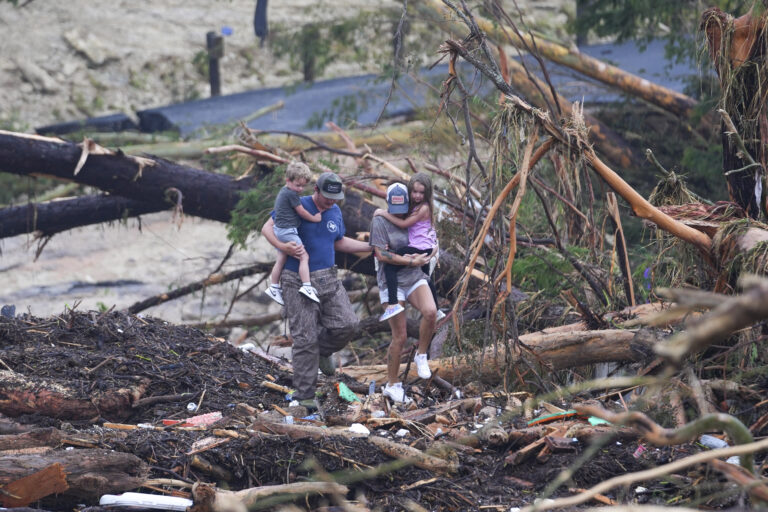![]() The Talmud refers to Klal Yisroel as “rachmanim bnei rachmanim.” When crises unfortunately strikes, it is literally in our very essence to shield and protect children to the best of our ability. Children naturally turn to adults for guidance in difficult times, and the words we choose, or the phrases we avoid, can have a tremendous impact on how they cope with tragedy.
The Talmud refers to Klal Yisroel as “rachmanim bnei rachmanim.” When crises unfortunately strikes, it is literally in our very essence to shield and protect children to the best of our ability. Children naturally turn to adults for guidance in difficult times, and the words we choose, or the phrases we avoid, can have a tremendous impact on how they cope with tragedy.
The following guide is geared to help adults speak with, and listen to, children following tragic events. These concepts can be utilized both in home and school settings. Please note that while the secular literature is filled with “do’s and don’ts” for helping children, the religious and cultural nuances of the Jewish community necessitate the inclusion of issues to “be careful” of as well. When using this guide, please keep in mind that there are no specific recipes or timetables for the responses that children or adults have to tragedy. In an article written by Linda Goldman, under the title “Talking to Children about Terrorism”, she says “Gaining insight into children’s developmental stages allows predictability and knowledge of age-appropriate responses”. Signs that children have been affected by the knowledge of a traumatic public event include play re-enactment, nightmares, reoccurring waking memories and disturbing thoughts and feelings amongst other responses that you may notice as abnormal for this child. In her book titled “Brave Bart: A Story for Traumatized and Grieving Children”, Caroline Sheppard states that “children may feel powerless to change what happened to them, hopeless to see a future and helpless to stop their bad feelings. The best way to help your child, congregant or student is by preparing yourself with the tools that you can use to help the child work through their fears and trauma.” We therefore present you with some tips in talking to your children as only you know if and what their needs are.
DO’s – the following activities are often very helpful to children who are coping with tragedy.
• Do find things which will help comfort children when talking to them about an act of violence, including:
– speaking in gentle tones
– holding them or placing your arm around their shoulder (when appropriate)
– speaking in very basic, direct and factual terms
• Do encourage (but do not coerce) them to voice their feelings, stressing that there are no “right” or “wrong” reactions to grief and terror.
• Do validate what they say by letting them know that such feelings are very normal and experienced by many children and adults.
• Do focus children on things which can provide solace to them, including:
– Past successes in facing problems or adversity. Try to crystallize how they were able to cope in the past.
– Appropriate ways to express their emotions about the traumatic experience, including:
Talking
Drawing
Playing
Writing in a journal
Writing poetry
Making collages
• Do inform them who they can turn to, as well as when and where.
• Do encourage children to engage in activities that they find comforting and relaxing (as long as they don’t feel guilty doing so), including:
Playing
Exercising
Writing
Being with friends
DON’Ts – experience has shown that there are certain things that adults say or do, solely out of a desire to help children, which in fact often prove counterproductive.
• Do not lose patience at repeated questions, especially concerning the physical aspects of trauma (sights, smells, etc., of a dead body; details of the causes of the death).
Younger children tend to ask the same questions repeatedly. Patience is crucial since they need all the assurance and calmness you can provide at this critical time.
While adults may view such questions as inappropriate or in bad taste, younger children tend to focus on the physical aspects of a dead body.
Questions may unintentionally serve as harsh reminders that the tragedy actually happened, which in turn can trigger sad, frustrated or angry responses. Don’t let these reactions spill over to the child.
• Do not withhold or provide misleading information about the events and the aftereffects of them.
It is human nature to want to protect a child from possible emotional pain. However, attempting to shield children from what they are going to experience anyway can have negative results. Seeing people sad, upset and/or crying can be scary, especially if they have not been properly prepared.
• Do not give spiritual responses that you don’t really understand, or that come across as smug or preachy.
Children have an intuitive radar for truth. If they sense that you don’t really fully believe what you are saying, they can become turned off. It is often better to say, “I really don’t understand these things either,” than to give a pat answer.
Be careful about answers that sound preachy – teens in particular can be very turned off by this.
• Do not ask a child questions like “It’s been weeks now – you’re still not over it?” especially if the deceased was a close friend or relative.
Children tend to feel that such statements minimize both the loss of the deceased, as well as their accompanying feelings. While “life does go on,” such statements serve as proof in their eyes that “you just don’t get it.”
People who were especially close to the tragedy don’t want to “get over the fact” – adults, and older children, will often say that they want to learn “how to live with the trauma.”
BE CAREFUL’s
Adults may say many things in their efforts to calm, comfort and support children following tragedies. However, experience has shown that despite the fact that certain concepts may be very well-accepted (hashkafically and/or culturally), particular expressions may nonetheless be confusing for some children.
If you do find yourself addressing the following topics, please be aware of:
• possible feelings and thoughts that may be triggered within the child(ren).
• resulting responses you may receive from them.
It can help to anticipate these reactions in advance, and be prepared to address them tactfully and sensitively.
We invite you to contact us if you have any questions or need further suggestions or guidance:
PROJECT CHAI can be reached at [email protected] or by calling 855-3-CRISIS.
(YWN World Headquarters – NYC)










